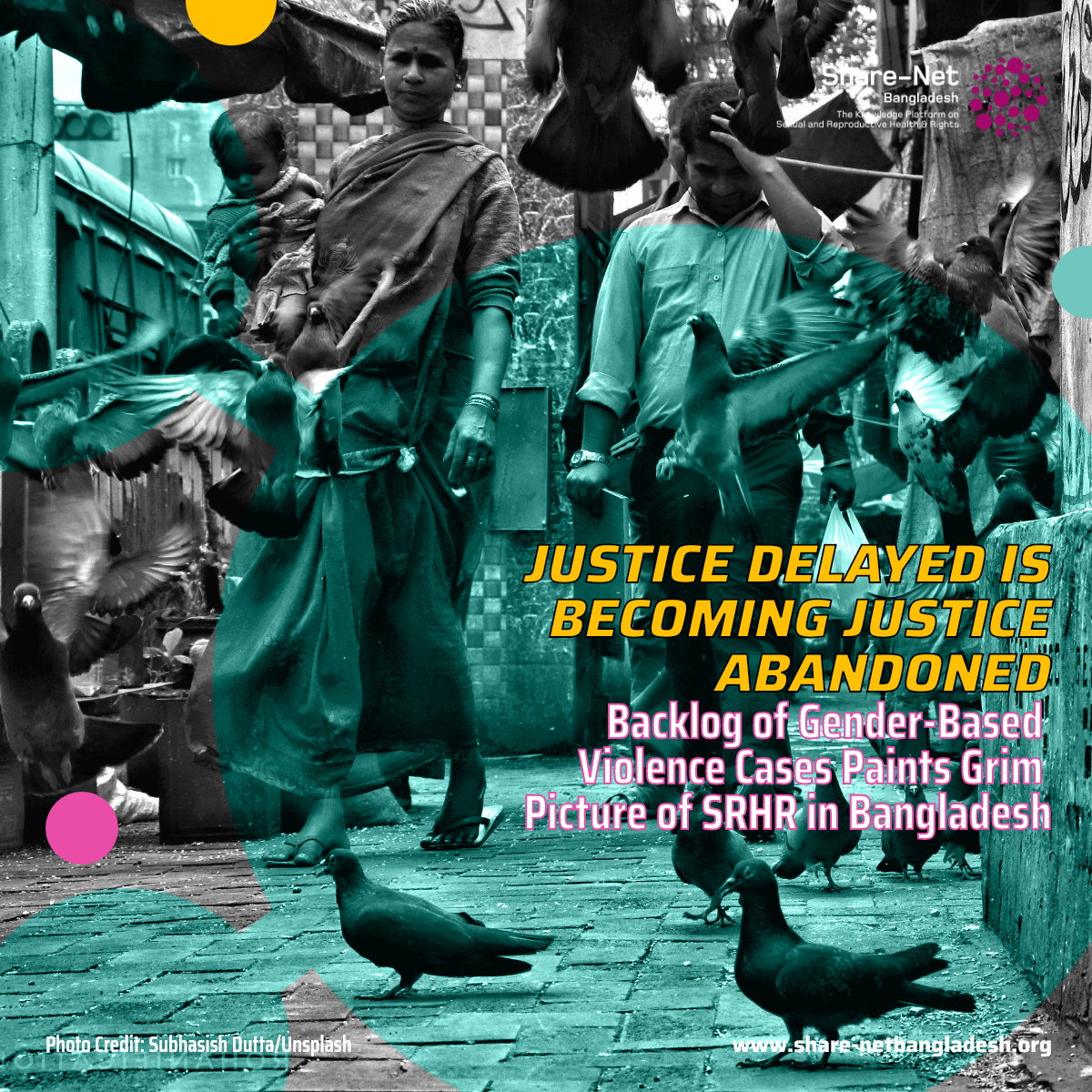Justice Delayed Is Becoming Justice Abandoned: Backlog of Gender-Based Violence Cases Paints Grim Picture of SRHR in Bangladesh
In Bangladesh, justice for survivors of sexual and gender-based violence remains painfully out of reach—often for years. Despite legal provisions mandating that trials under the Women and Children Repression Prevention Act be completed within 180 days, reality tells a very different story.
As of March 2025, a staggering 148,314 cases remain pending under this Act. Of these, 35,262 cases have remained unresolved for over five years, according to The Daily Star. The failure to deliver justice within a reasonable time not only denies victims their right to redress but also emboldens perpetrators, undermining efforts to combat gender-based violence and protect sexual and reproductive rights (SRHR).
“This level of inefficiency in our justice system will only increase gender-based violence,” the report warned, echoing the frustration of thousands of survivors and activists alike.
Broken Promises and a Dysfunctional System
Several systemic flaws contribute to these delays. Legal experts blame the lack of sincerity among prosecutors, witness intimidation, and frequent stay orders by the High Court. In one tragic example, the rape trial of a nine-year-old girl in Dhaka’s Khilkhet area has dragged on for nine years, despite 96 hearings. The core issue? Six of the ten prosecution witnesses never showed up.
This is not an isolated incident. Across the country, witnesses often back out due to threats or fear of retaliation. Without reforms, such barriers will continue to deny victims the justice they deserve.
A Cell That Exists Only on Paper
A special cell, formed in 2020 under a 2016 High Court directive, was meant to monitor such cases. Led by the Registrar of the Supreme Court, the cell was expected to track trial timelines and submit periodic reports. But according to the report, the cell is now non-functional, becoming yet another example of institutional apathy.
Legal experts are calling for urgent reforms. Proposals include creating a separate secretariat under the Supreme Court to ensure implementation of directives, more forensic labs to fast-track evidence processing, and increased witness protection to ensure fair trials.
A Call for Structural Reform
Currently, only 101 tribunals are operational to deal with gender-based violence cases, an insufficient number given the backlog. “The government must establish more tribunals,” said legal observers, urging systemic changes rather than ad hoc solutions.
SRHR is not just about access to healthcare—it’s also about access to justice. Without accountability, laws meant to protect women and children become empty words. As Bangladesh aims to uphold the Sustainable Development Goals (SDG 5: Gender Equality and SDG 16: Peace, Justice, and Strong Institutions), the justice system must deliver—not just in promises, but in outcomes.
“Justice delayed is not just justice denied—it’s justice abandoned.”
Source: The Daily Star
Picture Credit: Subhasish Dutta/Unsplash


